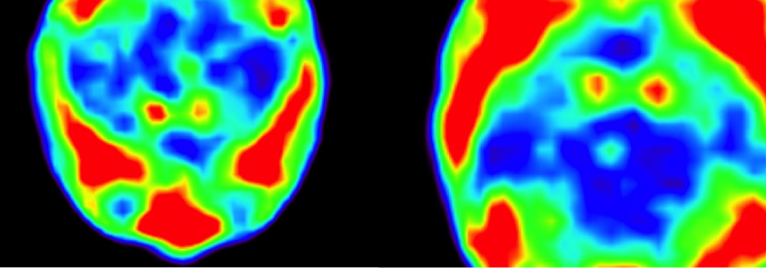Patients suffering from COVID-19 can develop concomitant and long-term symptoms in their nervous system. The most common symptom in this context is the loss of the sense of smell and taste, while more severe symptoms such as stroke, cerebral seizures, or meningitis are possible. A team of scientists from the medical faculties at the Universities of Münster and Duisburg-Essen investigated this phenomenon, termed Neuro-COVID. They could demonstrate that immune and interferon responses are weakened in COVID-19 patients. These results were recently published in the journal Immunity.
The research teams applied state-of-the-art single-cell transcription technologies, which help visualize the expression of thousands of genes on a single-cell level. “This allowed us to characterize in detail the immune response of Neuro-COVID in the cerebral fluid at a location near the brain”, says PD Dr. Gerd Meyer zu Hörste, a senior physician in the Department of Neurology at the University Hospital Münster and senior author of the study publication. “From a group of 102 COVID-19 patients, we identified those who developed neurological symptoms and required a cerebral fluid extraction for further diagnosis”, says PD Dr. Dr. Mark Stettner, who is a senior physician in the Depart

Priv.-Doz. Dr-Gerd Meyer zu Hörste (left) and Dr. Michael Heming investigated “Neuro-Covid”.
ment of Neurology at the University Hospital Essen and led the study together with Meyer zu Hörste.
Samples from eight Neuro-COVID patients were collected and sent to Münster for analysis. “An increased number of T cells in the patients’ cerebral fluid had reached a stage of exhaustion”, says Dr. Michael Heming, first author of the study and assistant physician in the Department of Neurology at the University Hospital Münster. Also, the interferon answer of Neuro-COVID patients was reduced compared with viral brain inflammation. Interferons are an essential early defense mechanism for viral diseases. The researchers further found an increased number of dedifferentiated phagocytes in the cerebral fluid.
“These findings indicate a reduced antiviral immune response in Neuro-COVID patients”, says Prof. Christoph Kleinschnitz, Director of the Department of Neurology at the University Hospital Essen. A more detailed understanding of the Neuro-COVID phenomenon is the basis for faster disease detection and improved treatment. “Publication of the study results in a high-class journal such as Immunity is the result of intensive and hard work. Our researchers achieved impressive results within a short time”, says Prof. Wiendl, Director of the Department of Neurology at the University Hospital Münster.

















